
The biggest thing technology has impacted in modern society and something that has been affected since its conception, is its ability to connect people; thus making us more, and more readily accessible to others. I’m not sure what people did before social media and communication technologies; I think that as I was growing up, they came into popularity at an age when it was appropriate for me to be a member. One of my first social media sites was “MySpace – A Place For Friends,” which fell out of popularity to Facebook. One of the coolest things I’ve learned this semester was about the findings of Everett Rogers and the S-curve hypothesis, basically proving that communication technologies follow a trend that when graphed forms an S-curve. Relating Facebook to that hypothesis I believe that my age group fit on the graph of the adaptation of Facebook by society as “early adaptors”. I’ve since kept and maintained my Facebook account from time to time – but not often, I sometimes forget I have it. In the past I deactivated my Facebook account and took a sort of vacation from being connected, we have learned this semester that this is a common practice amongst Facebook users. I’m not sure what it is about social media and technology, but at times they get really, really overwhelming.

While reading two of the articles that were posted on Blackboard (Turn Off the Phone (and the Tension) & YOUR SUMMER VACATION UNPLUGGED: IS IT EVEN POSSIBLE) I could relate with both of the authors. But towards the end of both articles the feelings the authors had about technology after unplugging during vacation was very different. One author appreciated the beauty of a world not dependent on technology, and the other author couldn’t remember what he did before technology and never wanted to experience that feeling again. I most closely relate to the author who was not attached to technology and social media, for the simple fact that I am aware of what technology can do to a person who is dependent on it. In our textbook it is said that 27% of time spent on the web is on SNS, and even still a lot of that time you are interacting with the profiles of other people, not really being productive. From the media dependency theory I know that if I make SNS or communication technologies a major part of life I am integrating them into a need, or must in my day to day routine; which as a person who is overwhelmed by social media at times, dependency would not be a positive effect.
While in COMM 303 Dr. Esrock has taught many theories and facts about communication technologies that I have only recently been oblivious to earlier in the semester. Dr. Esrock challenged us to take a day off from social media and report our findings about that experience. Over thanksgiving break, like the two articles I read I unplugged from social media completely, only interacting with television, music, and text. In this time I experienced a time warp and an increase in my over all production. Sometimes while on SNS I lose track of time and it speeds by, but a day without it was really refreshing. I was not distracted by anything and I was able to get a lot done, and I think that you could tie in the theory of uses and gratification we learned about earlier in the semester. From my experience I realized that I don’t have a media dependency, rather I use and access SNS and communication technologies as a way to distract myself from pending task. Over all I have learned so many more relatable things from this course, related readings, and my professor Dr. Esrock, that continue to be apparent in my everyday, average life.

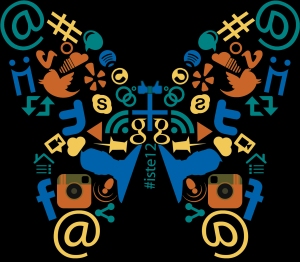




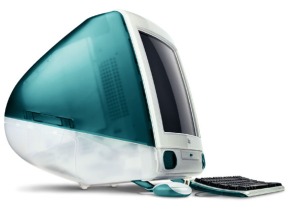



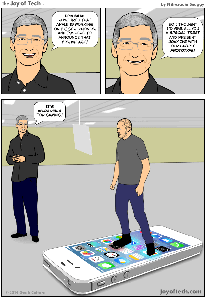


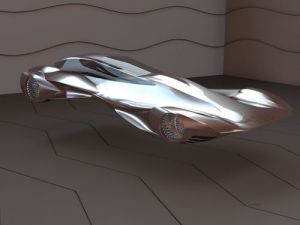
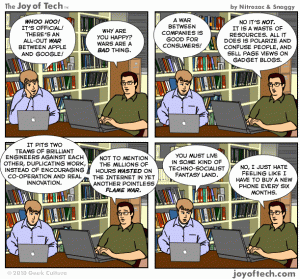

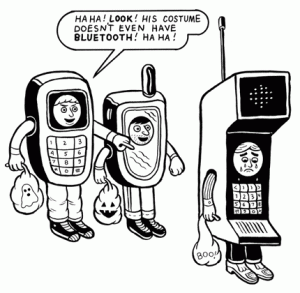 Technology is becoming more accessible, powerful/ smart, and necessary for the lives that we all live these days. I believe that to live in modern society and in a country that is not underdevelopment, such as the U.S., You will find it hard to live without coming into contact with new tech. that is being forced upon us. Our dorms have electronic keypads; online banking; video chat; so many amazing advances in technology that have only recently been introduced to us. Like most Gen Y’s I love the latest’s gadgets and find it easy to adapt to changes in technologies, user interface. But I often wonder if tech. will cause problems in the future as far as accessing data or systems failing. It’s easy to not realize that we put ourselves at technologies mercy, but we have so much faith in systems that are so fragile. We expect tech. to work all the time, like magic.
Technology is becoming more accessible, powerful/ smart, and necessary for the lives that we all live these days. I believe that to live in modern society and in a country that is not underdevelopment, such as the U.S., You will find it hard to live without coming into contact with new tech. that is being forced upon us. Our dorms have electronic keypads; online banking; video chat; so many amazing advances in technology that have only recently been introduced to us. Like most Gen Y’s I love the latest’s gadgets and find it easy to adapt to changes in technologies, user interface. But I often wonder if tech. will cause problems in the future as far as accessing data or systems failing. It’s easy to not realize that we put ourselves at technologies mercy, but we have so much faith in systems that are so fragile. We expect tech. to work all the time, like magic.